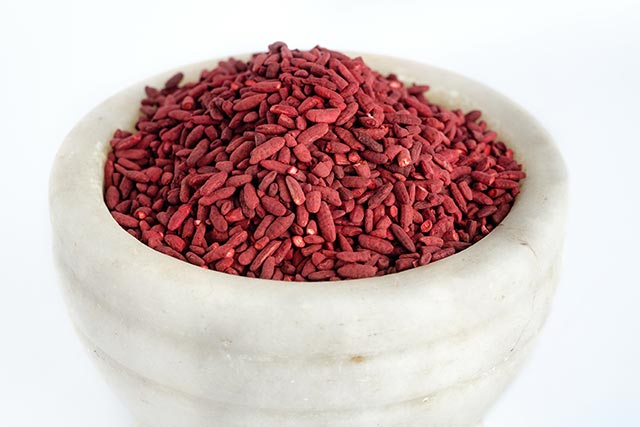Cannabis-based drug can ease muscle tightness in patients with motor neuron disease, study finds
06/02/2019 / By Edsel Cook

A newly developed oral spray could further improve the effects of anti-spasticity treatments on the symptoms of muscle stiffness. Called “naximols,” the medicine employed delta-9 tetrahydrocannabinol THC and cannabidiol, two natural compounds derived from cannabis (Cannabis sativa).
Muscle spasticity often causes disability and lower quality of life in patients with motor neuron disease. The cannabis-based spray could serve as a complementary therapy for existing treatments.
A 2019 clinical trial held by Italian researchers tested the naximols spray on adult patients suffering from motor neuron disease who were already taking anti-spasticity drugs. After six weeks, participants who got the complementary therapy displayed reduced levels of muscular pain and stiffness.
Existing pharmaceutical drugs are not very useful when it comes to alleviating the symptoms of spasticity. They also have adverse side effects, including reducing the strength of muscles and causing fatigue.
“There is no cure for motor neuron disease, so improved symptom control and quality of life are important for patients,” reported Vita-Salute San Raffaele University researcher Dr. Nilo Riva, the head of the research team. “Our proof-of-concept trial showed a beneficial effect of THC-CBD spray in people on treatment-resistant spasticity and pain.” (Related: Research suggests cannabis can relieve symptoms, pain associated with MS.)
Cannabinoids can naturally alleviate spasticity caused by motor neuron disease
Motor neuron disease is a deadly neurodegenerative disorder that targets motor neurons, the nerve cells that control the movement of muscles. The rate of its progression varies – its most prevalent and common form called amyotrophic lateral sclerosis (ALS) causes rapid deterioration of neurons, while the rarer primary lateral sclerosis (PLS) takes much more time to develop.
The power of the elements: Discover Colloidal Silver Mouthwash with quality, natural ingredients like Sangre de Drago sap, black walnut hulls, menthol crystals and more. Zero artificial sweeteners, colors or alcohol. Learn more at the Health Ranger Store and help support this news site.
One of the most common symptoms of the disease is spasticity. Patients with ALS experience spasticity in varying degrees, while those with PLS are much more greatly affected by it.
Earlier studies showed that the cannabinoid parts of cannabis have therapeutic effects. Cannabinoids can relax muscles and stimulate the appetite. They also relieve pain, convulsions, and inflammation in patients with neurological disorders.
For their study on the effects of cannabinoids on spasticity associated with motor neuron disease, the San Raffaele researchers gathered adult patients with either ALS or PLS. All participants experienced symptoms of spasticity for at least three months. They also took anti-spasticity treatment for 30 days before they joined the study cohort, and continued taking those drugs throughout the experiment.
The participants took either naximols or a placebo as a complementary treatment for their ongoing therapy. They received increasing doses of the cannabinoid oral mouth spray during the first week of treatment. Once they reached the right dose of delta-9 tetrahydrocannabinol THC and cannabidiol, they maintained that level of treatment for another four weeks.
An oral spray derived from cannabis offers relief from muscle spasticity and pain
The Italian research team found that the cannabis-based oral spray significantly alleviated spasticity in the treated group, while the untreated group experienced deterioration. Furthermore, more naximols-treated participants reported experiencing improvements in their conditions when compared to the placebo group. Last but not least, the cannabinoid-treated group displayed higher levels of pain relief.
Naximols proved to be safe and well-tolerated. The cannabinoid spray only triggered mild to moderate adverse effects such as lowered levels of energy and fatigue, nausea, sleepiness, and vertigo. These side effects were in line with the expected side effects of using cannabinoids. No severe reactions took place, although three treated participants briefly stopped treatment due to either adverse events or progression of their motor neuron disease.
Further testing is needed before the oral spray can be approved and made available. However, the results of the San Raffaele-led study offer hope for motor neuron disease patients struggling with pain and stiffness of the muscles.
Sources include:
Tagged Under: alternative medicine, Cannabinoids, cannabis, cannabis cures, hemp, herbal medicine, Herbs, medical marijuana, Motor neuron disease, muscle spasticity, natural cures, natural medicine, neurodegenerative disorders, pain relief, remedies, research, spasticity



















